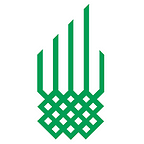Ensuring access to food for vulnerable communities and COVID-19 patients in Pakistan
The Aga Khan Agency for Habitat responds to community needs in Pakistan’s isolated mountain communities.
With nearly 300,000 confirmed cases and over 6,000 deaths, Pakistan’s COVID-19 response is working to address the country’s large population and limited health services. The Aga Khan Agency for Habitat (AKAH), an agency of the Aga Khan Development Network specialised in disaster management and response, is proactively trying to meet the humanitarian needs in Pakistan.
As Pakistan implemented a lockdown to reduce the spread of the virus, restrictions on movement disrupted supply chains and delivery for essential goods like food and medicines. Isolated mountain communities were particularly affected by price increases and food scarcity, particularly in remote and hard to reach areas.
The AKAH team jumped to respond to this urgent need, providing food and essential supplies to help vulnerable communities and local authorities cope with the pandemic. AKAH used emergency funding provided by Focus Humanitarian Assistance (FOCUS) to collect two weeks’ worth of food for 4,000 households across Pakistan, focusing on remote and hard-to-reach areas in Chitral and Gilgit-Baltistan. They also collected essential medicines and personal protective equipment (PPE) for volunteers and health professionals around the country.
Relying on its network of more than 35,000 trained volunteers across the country, AKAH was able to quickly and efficiently gather and transport the food supplies to rural and urban locations. These supplies provided families and patients in quarantine centers with access to food, reducing stress and ensuring access to essential goods for the most vulnerable.
Abdul Nasir Khan is one such volunteer. As captain of the Community Emergency Response Team (CERT) for Bang village in the Chitral district, Nasir is part of AKAH’s humanitarian response in Pakistan.
“Serving communities during COVID-19 was more than a challenge in mountainous and far areas of Chitral,” Nasir said. “As a CERT lead, we started with a community level campaign through loudspeaker announcements to educate communities to stay home and ensure personal hygiene.”
As the lockdown continued, Nasir and his CERT team used the food packages from AKAH to serve around 150 people at the quarantine center in Bang. Nasir also helped families in the village properly store and use the supplies.
“As an individual volunteer and part of a community-based organization, serving humanity is our core value,” he explained. “We feel proud [of] serving the vulnerable”.
In addition to providing food supplies, AKAH is supporting other AKDN agencies, community voluntary bodies, and local authorities in emergency planning and technical services in Pakistan. AKAH has established six Coronavirus Rapid Response Facilities in Gilgit-Baltistan and Chitral to extend the capacity of local health systems to respond the pandemic, working with the Aga Khan Health Services and the support of other partners. With additional funding, AKAH has installed foot-operated handwashing stations, and is improving water and sanitation facilities in 23 isolation centres established by the local government in Gilgit-Baltistan.
